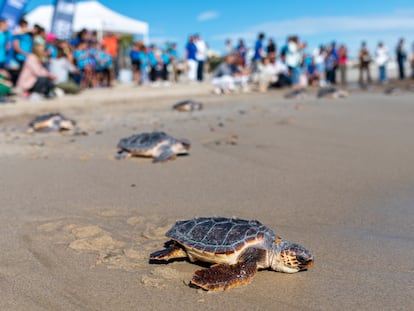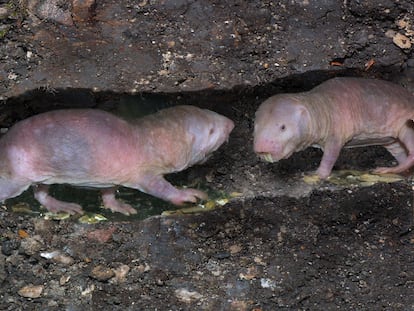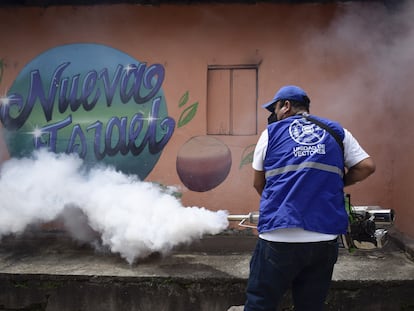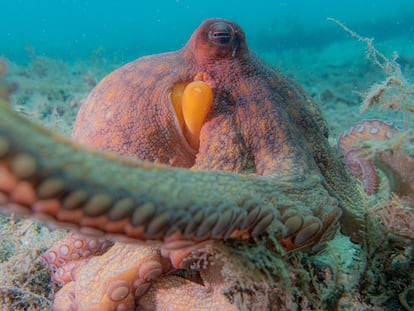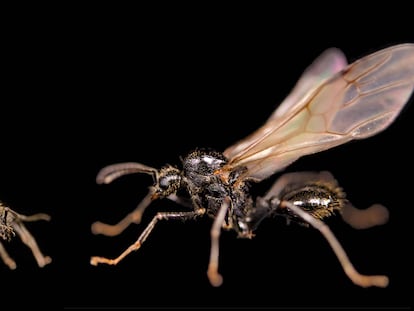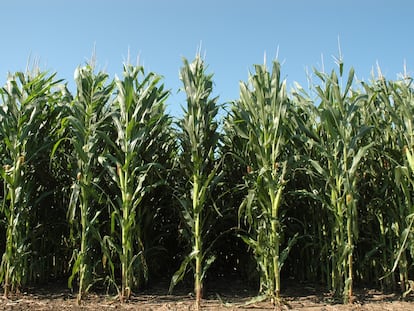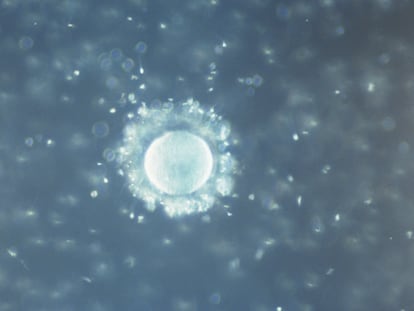The newly discovered microorganism appears to show resistance to a dozen modern antibiotics, but it also inhibits the growth of other bacteria
Scientists from the Miguel Hernández University of Elche stimulated the visual cortex of the patient until he was able to perceive light, movement, and even large letters
Dozens of colonies of three species show the same trend, which could produce unclear ecological consequences
A study of 160 people over a century old includes some of the oldest humans on the planet
Around 16,000 new species are described each year, but most animals and plants are listed as threatened as soon as they are brought to light
Fish, birds, reptiles, amphibians, and even a few mammals rely on magnetoreception for navigation. But the exact mechanism underlying this skill is still unclear to experts
New data shows how the approach of the African and Eurasian plates is forcing displacement that will eventually close the Mediterranean Sea
Modern geographic information systems have identified 186,000 miles of Roman roads and highways, combining all existing historical and archaeological sources
A study reveals the secrets behind the rodent’s remarkable ability to live 10 times longer than expected, without cancer or age-related degenerative diseases. When applied to fruit flies, researchers created ‘superflies’
Samples from Spanish supercentenarian María Branyas Morera reveal the keys to her exceptional genetics and provide clues for healthy aging
A study using data from over 1,000 rivers shows that these extreme events now last almost twice as long on the water as they do in the air
The genomes of thousands of mosquitoes reveal how the slave trade enabled the spread of the species that transmits dengue and yellow fever, while insecticides have made another malaria vector more resistant
Most ‘Rodentia’ have a nail on their thumb instead of a claw, which allows them to manipulate food
Considered the most intelligent invertebrates, these cephalopods have developed a very complex system to use their eight arms
The discovery, published in ‘Nature,’ could force scientists to redefine what constitutes a species
By releasing an alcohol into the air that causes neighbors’ roots to exude pesticides, they can even protect subsequent generations of crops
Analysis of a stalagmite reveals that some extreme events lasted for more than a decade
Spanish researchers have identified different types of plastics in seminal plasma and ovarian follicular fluid
Light pollution affects plants as if it were the Sun, accelerating the sprouting of leaves and postponing their fall
According to a new study, the animal, which had a varied herbivorous diet, barely chewed its food
Machine analysis of the handwriting on the manuscripts has recalibrated the dating of over 100 of them, rewriting the history of their origin
New tools bring closer the possibility of exterminating species considered harmful to humans, which is fueling an ethical dilemma
The behavior, which ends with the death of the young, was initiated by a young primate and imitated by others
Unlike the smooth contours of other flowers, the originally curved petals of roses end up forming polygons with straight edges
These synthetic materials have now become part of both the life and carbon cycles, from the surface to the deepest parts of the oceans
New research suggests we fall into a state resembling sleep when we meditate or experience a mental lapse






